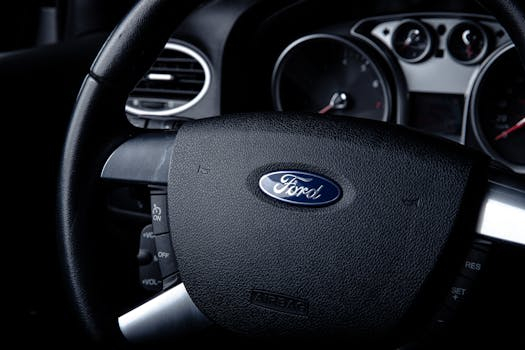AI in Automotive Manufacturing: Enhancing Quality Control
Welcome to the age of Artificial Intelligence (AI), where machines are becoming smarter and more efficient with each passing day. The impact of AI is widespread and it has made its way into the automotive industry as well. With the rise in demand for high-quality vehicles, manufacturers are constantly looking for ways to improve their production processes. AI in automotive manufacturing is playing a crucial role in enhancing quality control and revolutionizing the industry. In this article, we will explore the various ways in which AI is transforming the quality control processes in automotive manufacturing.
The Role of AI in Automotive Manufacturing
The use of AI in automotive manufacturing is not a new concept. In fact, many manufacturers have been using it for years in various aspects of the production process. However, with the advancements in technology, AI systems have become more sophisticated and are now able to perform complex tasks with greater accuracy and speed. In the quality control department, AI is being used in a number of ways to improve efficiency and ensure high-quality output.
Machine Learning for Defect Detection
One of the most significant ways in which AI is enhancing quality control in automotive manufacturing is through machine learning. Machine learning algorithms can be trained to detect defects and anomalies in the manufacturing process. These algorithms use data from past production cycles to identify patterns and anomalies that may indicate a potential defect in the current production cycle.
For example, in the assembly line, AI systems can use cameras and sensors to capture images of each component as it passes through the production process. These images are then compared to a database of images of defect-free components. Any deviation from the expected image will trigger an alert, allowing the quality control team to investigate and address the issue before it becomes a bigger problem.
Predictive Maintenance for Machinery
Another way in which AI is enhancing quality control in automotive manufacturing is through predictive maintenance. Machines and equipment used in production are prone to wear and tear, which can lead to unexpected breakdowns and costly delays. With AI, manufacturers are able to monitor the performance of their machinery and identify potential issues before they occur.
Using sensors and data analysis, AI systems can detect changes in the performance of machines and predict when maintenance will be needed. This allows for proactive maintenance, reducing the risk of unexpected breakdowns and ensuring the smooth running of the production process.
Data Analysis for Process Optimization
Data analysis is another key application of AI in quality control in automotive manufacturing. By collecting and analyzing vast amounts of data, AI systems can identify areas of improvement in the production process. This data can include information such as production speed, failure rates, and defect types.
Based on this data, AI systems can make recommendations for process optimization that can lead to improved efficiency and reduced defects. For example, the analysis might reveal that a particular part of the production process is prone to defects, allowing manufacturers to make adjustments to prevent future occurrences.
The Benefits of AI in Quality Control
The use of AI in quality control in automotive manufacturing comes with several benefits, including:
Improved Quality and Consistency
With AI’s ability to detect even the smallest defects and anomalies, there is a significant improvement in the quality of vehicles produced. This ensures that customers receive vehicles that meet the highest standards, increasing customer satisfaction and brand reputation.
Reduced Costs and Time Savings
By identifying and addressing potential issues before they occur, AI systems can help manufacturers save time and money. Predictive maintenance can reduce the downtime caused by unexpected breakdowns, while process optimization can lead to increased efficiency and reduced waste.
Enhanced Safety
AI systems in automotive manufacturing can also help improve safety by identifying potential safety issues during the production process. This allows manufacturers to address them before the vehicles are released to the market, ensuring the safety of both drivers and passengers.
In Conclusion
AI has revolutionized the automotive industry, and its impact on quality control in manufacturing is undeniable. By leveraging AI’s capabilities, manufacturers can improve the quality of their vehicles, reduce costs, and enhance safety. As technology continues to evolve, we can only expect to see more applications of AI in automotive manufacturing and other industries in the future.





